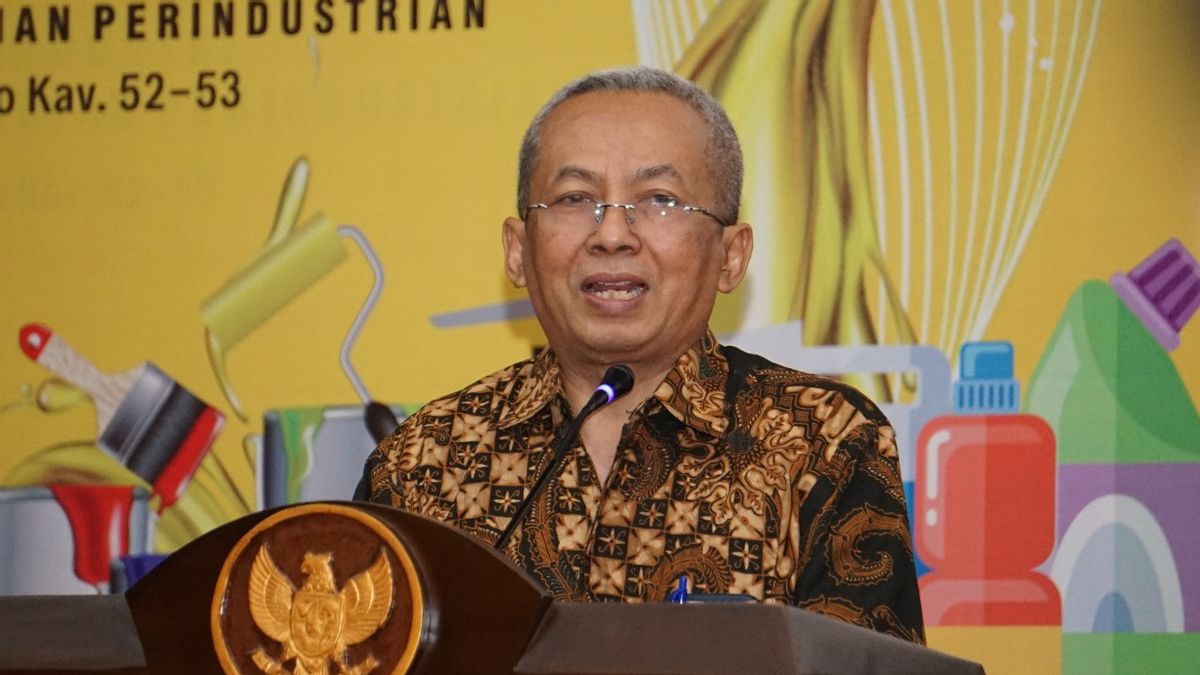JAKARTA - The fish canning industry is one of the most blessed sectors in the midst of the COVID-19 pandemic. This is because the demand for processed products in this sector tends to increase, especially to meet the protein needs of the community.
"The national stock for canned sardines and mackerel currently amounts to 35 million cans. Apart from being absorbed through the export, retail and online markets, processed canned fish can be used as a social assistance product that meets people's protein needs," said the Director General of Agro Industry at the Ministry of Industry. Abdul Rochim in Jakarta, Friday 24 April.
The Ministry of Industry noted that up to now there are 718 fish processing business units scattered in various parts of Indonesia. The total production of this fish processing sector reached 1.6 million tons in 2019, an increase of 300 thousand tons compared to 2016.
"As for the export value, this industrial sector will also increase in 2019 to US $ 4.1 million," Rochim said.
According to the Director General of Agro Industry, the fish processing industry is included in the labor-intensive and export-oriented sector. Therefore, it is necessary to get development priority.
"At least this sector has been able to absorb a workforce of 336 thousand people. With no constraints on the supply of local fishery raw materials, the absorption of labor can be optimized," he explained.
Despite its positive performance, the fish canning industry is also facing various challenges due to the impact of the COVID-19 pandemic. These challenges include the increase in the price of imported cans, pasta sauces and thickening flour and the reduced raw material for fish imported from countries that have imposed a lockdown.
"Exports of processed fish to countries affected by the COVID-19 outbreak have also experienced disruption due to shipping operators that have not operated normally and buyers have postponed purchases so that stocks have piled up in cold storage," he said.
Therefore, in order to maintain business continuity for the domestic fish canning industry, the Ministry of Industry views that this sector needs a stimulus.
"For example, the stimulus is in the form of soft loans, relaxation of permits, exemption of import duty on raw materials, and programs to increase domestic consumption to absorb these finished products," Rochim said.
The Ministry of Industry has proposed various policies to oversee the food and beverage industry sector so that it can gain ease of production, especially during the COVID-19 emergency.
"We are proposing a tariff post for import import duty exemption in the context of dealing with the impact of Covid-19 in the volume II stimulus," he said.
In addition, there is also a policy in the form of relaxation of the application of compulsory SNI through the Circular of the Minister of Industry Number 5 of 2020 concerning Temporary Exclusion for the Addition of Fortifiable Substances in Wheat Flour and SE of the Minister of Industry No. 6 of 2020 concerning the Temporary Exclusion of Vitamin A and / or Provitamin A Content in Palm Cooking Oil.
The Ministry of Industry projects that the food and beverage industry sector will continue to grow amid the impact of the COVID-19 pandemic. "We estimate that the growth of the food and beverage industry will be at 4 to 5 percent, this is good enough," he said.
Furthermore, the food and beverage industry is one of the sectors that has received a license to operate during the implementation of Large-Scale Social Restrictions (PSBB), which are implemented in a number of parts of Indonesia. Thus, this industry can continue to be active and it is hoped that it can meet the food needs of the community.
"We continue to encourage the industry to carry out production activities by paying attention to work safety aspects according to health procedures and protocols in dealing with the COVID-19 outbreak," he concluded.
The English, Chinese, Japanese, Arabic, and French versions are automatically generated by the AI. So there may still be inaccuracies in translating, please always see Indonesian as our main language. (system supported by DigitalSiber.id)













